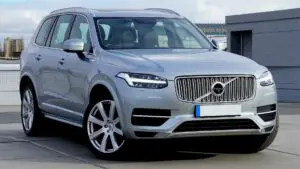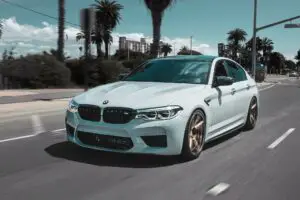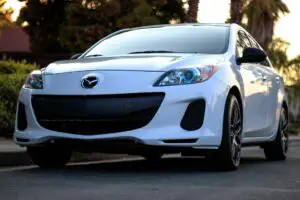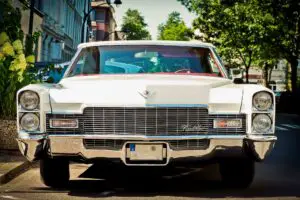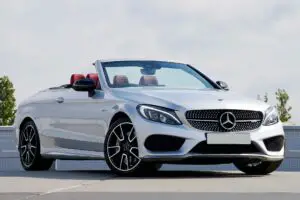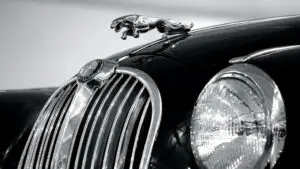Mini Coopers are some of the most popular cars in the world. They have a long history and have always been considered reliable and worth purchasing. But, what if your Mini Cooper breaks down – are Mini Coopers expensive to maintain? Read more about repairs and common issues of these cars here.
Mini Coopers are, unfortunately, notoriously costly to maintain. The yearly maintenance is often double the cost of what average car owners pay. People who’ve dabbled with Minis say these cars are expensive and hard to repair because of their complicated design. They were made to be compact but not to enable comfortable repairs.

If you plan on buying a Mini Cooper and want to know if it’ll be a hassle to repair, keep reading here and decide for yourself.
Table of Contents
Are Mini Coopers Expensive to Maintain When They’re New?
Mini Coopers are legendary. The famous movie “The Italian Job” was all about using Minis to perform a big heist. If Michael Caine drove it, everyone else could. However, this two-door hatch car surprised the world in other not-so-good ways.
After years of development and possible fixes, it seems like the team behind Mini hasn’t made any progress in making repairs easier. Sadly, they may look beautiful, but they’re expensive to buy and quite pricey to fix and maintain.
You may fare better if you get a brand-new Mini Cooper because the parts will be new, and you may get repairs covered by insurance, depending on the store where you got the car. This will only delay the need for repairs, though, but it may be slightly cheaper.
What Are the Most Common Issues a Mini Cooper Has?
Minis encounter various problems, but the following are the most common issues these cars have:
- Steering pump – this part is commonly prone to damage in Minis. Mechanics would recommend replacing the entire machine, including the coolant fan and belts, which could set you back a bit,
- Front radiator support – low-to-the-ground cars often have front radiator support issues. In Minis, radiator supports are made of plastic, which obviously makes them easier to break,
- Variable Valve Timing (VVT) – Minis require a lot of oil to perform well on the road. Without enough oil, the friction would cause nearly irreparable damage. Frequent oil checks and changes are essential when owning a Mini Cooper,
- Loose timing chain – when there are problems with the loose timing chain, you may face a lag in the car’s performance and mechanisms. Frequent checkups are necessary to avoid this issue, too,
- Transmission fluid – while the manufacturers may not recommend transmission fluid changes, mechanics would, especially for Mini owners.
Is a Second-Hand Mini Cooper Easier to Maintain?
Essentially, second-hand cars are cheaper but could come with hidden issues. If you get a used Mini with average mileage, you’ll have to take it to the mechanic as soon as the first payment is made.
Every car requires regular maintenance. Doing this will extend your vehicle’s lifespan, and while it may not be cheap, fixing minor issues on time will prevent worse and pricier outcomes.
This is especially true for purchasing a used vehicle. Even if the previous owner promises a good vehicle condition, you wouldn’t be a great investor without doing due diligence on it anyway.
Is It Better to Invest in a Second-Hand or New Mini Cooper?
Considering how much work there is around Minis in general, buying a second-hand car will just be harder to deal with. You’d have to check the engine, brakes, transmission, and clutch while maybe not knowing everything about these things.
If you don’t, hiring a mechanic to do the checkup for you will also knock a hefty sum out of your wallet. Registering the car to your name and transferring the deed is another hassle whose price depends on the state.
Unless you’re determined to get a Mini specifically and it’s your dream car, you may want to consider a cheaper or a more reliable option or simply get a brand new four-wheeler.
Essentially, if you must buy a Mini Cooper, new ones are better in terms of reliability, repairs, and potential insurance coverage by the seller.

The Average Mini Cooper Maintenance Fees
Every car needs yearly or biyearly maintenance, which includes a general checkup, tune-ups, potential brake replacement, and transmission fluid and oil changes. Here’s a charted overview of necessary repairs and maintenance and their costs.
| Repair type | Approximate cost |
| Average annual repair and maintenance | $850 |
| Tune-up | $320 |
| Oil change | $190 – $230 |
| Air filter replacement | $90 – $120 |
| Battery replacement | $380 – $400 |
| New brakes | $190 – $270 |
| Coolant change | $140 – $180 |
| New tires (set of 4) | $600 |
| New tire, one | $150 |
| New spark plugs | $150 – $200 |
| New transmission | Up to $3,000 |
Mini Coopers Are Excellent Cars, but You May Feel Broke at the End of the Year
Every new or used car a person buys requires repairs and maintenance at some point. That’s just the responsibility of being a vehicle owner. Sadly, with variable gas prices come variable car expenses, and repairs don’t always cost the same.
A Mini Cooper requires care and attention. While they’re amazing cruising cars that drive gently and smoothly on any road, that ease in driving and handling comes at an expense. Ensure you realize the extent of your responsibilities before investing in the UK’s legendary car.


